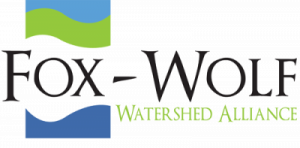UW Oshkosh Winnebago Pool Lakes
Harmful Algal Blooms Project
This project aims to better understand harmful algal blooms (HABs), also called cyanobacteria or blue-green algae, in the Winnebago Pool Lakes.
Our team is studying these blooms from many different angles:
– historical, social, and environmental-
with the goal of better understanding their causes and improving outreach, education, and management.
Harmful Algal Blooms, also known as blue-green algae or cyanobacteria, are caused by a bacteria that releases toxins which can cause harm to humans and animals. HABs grow in lakes, ponds, and stagnant streams when the water is warm and high levels of nutrients like phosphorus or nitrogen are present.
Although there are no quick or easy remedies to remove HABs from a water body, there are ways to reduce the amount of nutrients that go into them. Some ways you could help are:
-
Reduce lawn fertilizer use
-
Prevent things like leaves and grass clippings from going into storm drains
-
Protect your shoreline: Native plants do a great job of filtering water and protecting the shoreline from erosion
-
Be mindful: all runoff goes into a watershed and ends up in our lakes!
HABs produce dangerous toxins that can be harmful to vegetation, animals, and humans who spend time in and around the water. By consuming oxygen and blocking sunlight from competing vegetation, large Harmful Algal Blooms create dead zones where other vegetation cannot receive the nutrients they need to survive. These HABs can cause humans and animals alike to become sick.
HABs affect marine ecosystems, local and regional ecosystems, and even human health. They also impact recreational purposes on the water and the economies and businesses near the water during seasonal months.
Meet the Team!
Senior Research Team:
Dr. Stephanie Spehar SIRT Director, Professor of Anthropology, Principal Investigator
Dr. Heidi Nicholls Assistant Professor of Cultural Anthropology, Lead Social Scientist
Dr. Shannon Davis-Foust Biology and Environmental Studies Department
Dr. Jim Feldman Professor in Environmental Studies and History, Director of Environmental Studies Program
Dr. Bob Stelzer Biology Department
Kevin Crawford Professor of Analytical Chemistry
Mamadou Coulibaly Professor of Geography, GIS specialist
Marcel Dijkstra Assistant Professor of Environmental Engineering Technology
SIRT email: sustainuwo@uwosh.edu or sirt@uwosh.edu.


The H.A.R.T. of the project
UWO student researchers go out into the field to collect biophysical data and interviews from people interacting with the Lake Winnebago Pool system!
Our team, which includes researchers and students from UW Oshkosh and a community partner, the Fox-Wolf Watershed Alliance, is working to characterize the historical, socio-cultural, ecological, and policy dimensions of these blooms, constructing a deeply place-based understanding of HABs as an emergent phenomenon of the social-ecological system.
![Image[5]](https://uwosh.edu/sirt/wp-content/uploads/sites/86/2023/07/Image5.jpeg)
Harmful algal blooms affect freshwater systems worldwide and result in billions of dollars in economic losses to industry, recreation, and public health. This project applies a place-based, interdisciplinary approach to studying harmful algal blooms in the Winnebago Pool Lakes in Northeast Wisconsin.
Findings from this research will be translated into a number of deliverables, including policy briefs, workshops for regional stakeholders, a traveling multimedia pop-up exhibit, K-12 teaching resources, a project website with a blog, and articles in popular media.
The project is based at the University of Wisconsin Oshkosh and proudly partners with the Fox-Wolf Watershed Alliance. We are funded by the National Science Foundation (Award #2206519).
See this news story about Lake Winnebago algal blooms
![Image[20]](https://uwosh.edu/sirt/wp-content/uploads/sites/86/2023/07/Image20.jpeg)
![Image[11]](https://uwosh.edu/sirt/wp-content/uploads/sites/86/2023/07/Image11.jpeg)
PARTICIPATE IN THE PROJECT!
Get an interview!
We are looking for people who use, play in, enjoy, work with, etc the Lake Winnebago System and would be willing to be interviewed.
These interviews will last about 60-120 minutes and will be about your experiences with the lake system and your thoughts and insights on HABs (no prior knowledge needed).
The location and date will depend on what is convenient for both you and our research team.
If you are interested in learning more about this opportunity, please reach out to Heidi Nicholls, our lead social scientist, at nichollsh@uwosh.edu.
POST ON SOCIAL MEDIA AND TAG US
2. Upload your photo to Facebook, Instagram, or TikTok
3. Tag your location
4. Tag us @UWOSIRT
5. Comment on your thoughts
6. Include one or all of our hashtags: #UWOHABS #UWOHARMFULALGALBLOOMS #WIHABS #WIHARMFULALGALBLOOMS
TAKE A SHORT SURVEY
You may see also see our research team throughout the summer at boat launches, fishing locations, public beaches and more. We will be asking people a shorter series of questions on your thoughts and perceptions of these HABs and would love to hear from you! If you see us, say hello! And tell your friends!
If you have any questions or concerns, please contact sirt@uwosh.edu.
We Proudly Work With:
Sustainability Institute for Regional Transformations
UW Oshkosh
800 Algoma Blvd.
Oshkosh, WI 54901






